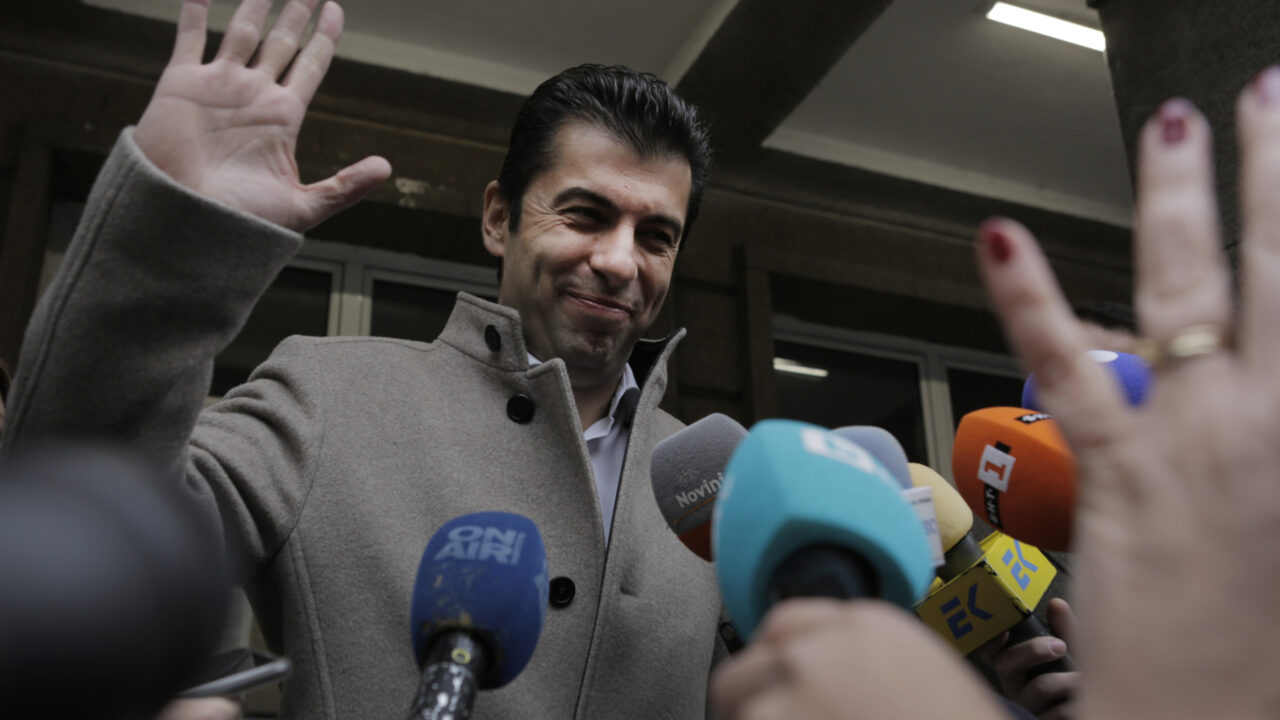Democratic renewal in Europe: Bulgaria joins a growing trend
It has taken three general elections for change to come in Bulgaria – but this week’s parliamentary vote gives cause to hope for genuine action on corruption
A new political force called We Continue the Change (PP) is the surprise winner of Bulgaria’s third parliamentary election in a year. Led by two energetic businessmen, Harvard graduates Kiril Petkov and Assen Vassilev, it won 67 of the parliament’s 240 seats. Coalition negotiations are under way, with three other parties to be included in an elaborate process seeking agreement in different policy areas. The two new leaders’ ambitious goal is to be ready to form a government by mid-December.
For Bulgarians, memories are still strong of the anti-graft protests of a year ago. Thousands of people gathered together over many months with the aim of bringing to an end the country’s oligarchic system. Two-thirds of citizens backed the demonstrations. It eventually took three elections – in April, in July, and finally again in November – until a majority for change could coalesce.
The corruption problem can be illustrated well by the case of Delyan Peevski. Some months after last year’s protests, the US State Department announced it was putting two Bulgarian oligarchs on its Magnitsky sanctions list – and that it was not expecting any cooperation from the Bulgarian state prosecution in its pursuit of the individuals. The US move likely forced the pair to leave their place of residence in Dubai. One of them, Peevski, returned to Bulgaria to run – successfully – in this week’s parliamentary election on the list of the Movement for Rights and Freedom (DPS) party, which seeks to represent the country’s Turkish minority. A frequent kingmaker in Bulgarian politics, DPS has been at the heart of many public procurement deals. It is also the only Bulgarian member of the Renew Europe liberal grouping in the European Parliament. Reporters Without Borders has called Peevski “the most notorious embodiment” of the collusion between the media, politicians, and oligarchy. Yet he now sits in parliament.
Nevertheless, the Peevski case is a clear reminder of the principle that the best help for a society comes from within. Years of negative EU reports about the rule of law, poor media freedom and corruption rankings, and international sanctions all suggested the presence of a disease – one from which Bulgarians have been suffering in their daily lives. Newly built roads that need repair; dysfunctional and passive governing institutions; the government’s inability to translate the European green and digital agendas into public policies; a major health crisis – all are signs of a badly run state machine. Repairing it will require courage to reform the prosecution and energy to bring back the sense of a common cause around the public interest. It will also require endurance and imagination. But the foundation has been laid through the change itself.
Democracy requires change; what some in the West may dub instability can be lifeline for keeping public interest alive in the east.
Constructing a coalition following this week’s vote will not be an easy task. One potential governing partner is the Democratic Bulgaria party, which is ideologically close to PP in its focus on tackling corruption. But the other two potential partners are the Bulgarian Socialist Party and ITN, the party of television entertainer Slavi Trifonov. For the coalition negotiations to succeed, these parties will have to support the removal of the prosecutor-general, Ivan Geshev, who protesters see as the main reason for the state’s failure to deal with corruption. The two parties’ respective leaderships both still appear lukewarm about signing up to this goal. It is, however, clear voters sent a message calling for renewal and accountability, and for taking the state back from the capture of the 12-year-long rule of former ruling party GERB and its prime minister Boyko Borissov. If any of them chicken out of forming a coalition and attempt to weaken the anti-corruption agenda, they will feel the consequences at the ballot box.
Bulgaria is not alone in experiencing a degree of democratic renewal. In Hungary, parties have come together in a new coalition of six parties to remove the prime minister, Viktor Orban, who has ruled the country for over a decade and captured the state. In the Czech Republic, it took a five-party coalition to finally eject Andrej Babis after he had spent two terms in power. In Serbia, Aleksandar Vucic has become the epitome of ‘unreplaceable government’, and the divided opposition has been contributing to that prophecy.
Undoubtedly, it is hard to place together in one category all of Orban, Borissov, Babis, Vucic, and Slovenia’s prime minister Janez Jansa. Some are anti-liberals, others autocrats, ultra-conservatives, nationalists, or just populists. But what they have in common is that they have been around for too long. Democracy requires change, and central and eastern European democracies are at risk of capture through professional propagandists and kleptocratic networks if elites are not regularly renewed. What some in the West may dub instability can be lifeline for keeping public interest alive in the east.
It is therefore significant that there is to be a new government in Bulgaria, even in the form of a complicated coalition and a risk it may not hold office for long. Some observers have dismissed voters’ choice as a “chase for novelty”. But for Bulgarians and their many near-neighbours who have endured such inadequate rule for too long, this choice is one that democrats everywhere should welcome.
The European Council on Foreign Relations does not take collective positions. ECFR publications only represent the views of their individual authors.



